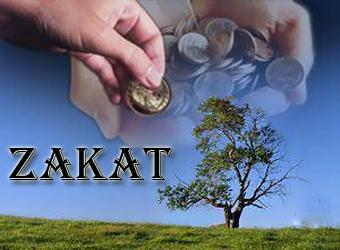Abu Hurairah (رضي الله عنه )
reported: The Messenger of Allaah (صلى الله عليه و سلم) said,
“Any person who possesses gold or silver and does not pay what is due on it (i.e., the Zakat); on the Day of Resurrection, sheets of silver and gold would be heated for him in the fire of Hell and with them his flank, forehead and back will be branded. When they cool down, they will be heated again and the same process will be repeated during the day the measure whereof will be fifty thousand years. (This would go on) until Judgement is pronounced among (Allaah’s) slaves, and he will be shown his final abode, either to Jannah or to Hell.”
It was asked, “How about someone who owns camels and does not pay what is due on him (i.e., their Zakat)?” He (صلى الله عليه و سلم) replied, “In the same way the owner of camels who does not discharge what is due in respect of them (their due includes their milking on the day when they are taken to water) will be thrown on his face or on his back in a vast desert plain on the Day of Resurrection and they will trample upon him with their hoofs and bite him with their teeth. As often as the first of them passes him, the last of them will be made to return during a day the measure whereof will be fifty thousand years, until Judgement is pronounced among (Allaah’s) slaves, he will be shown his final abode either to Jannah or to Hell.”
